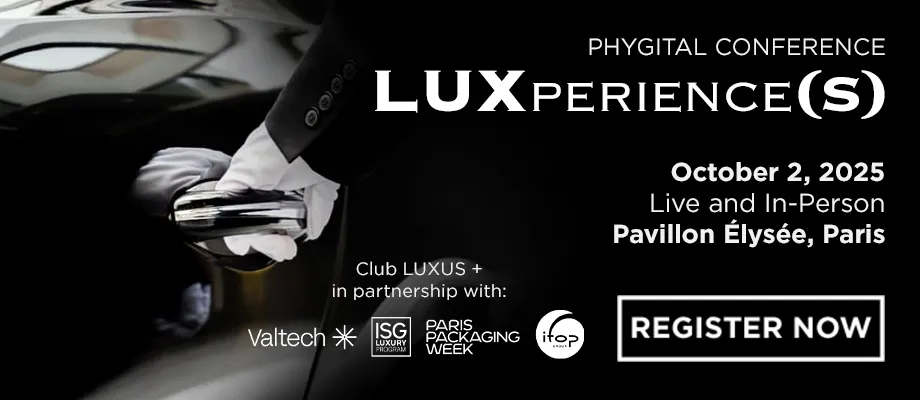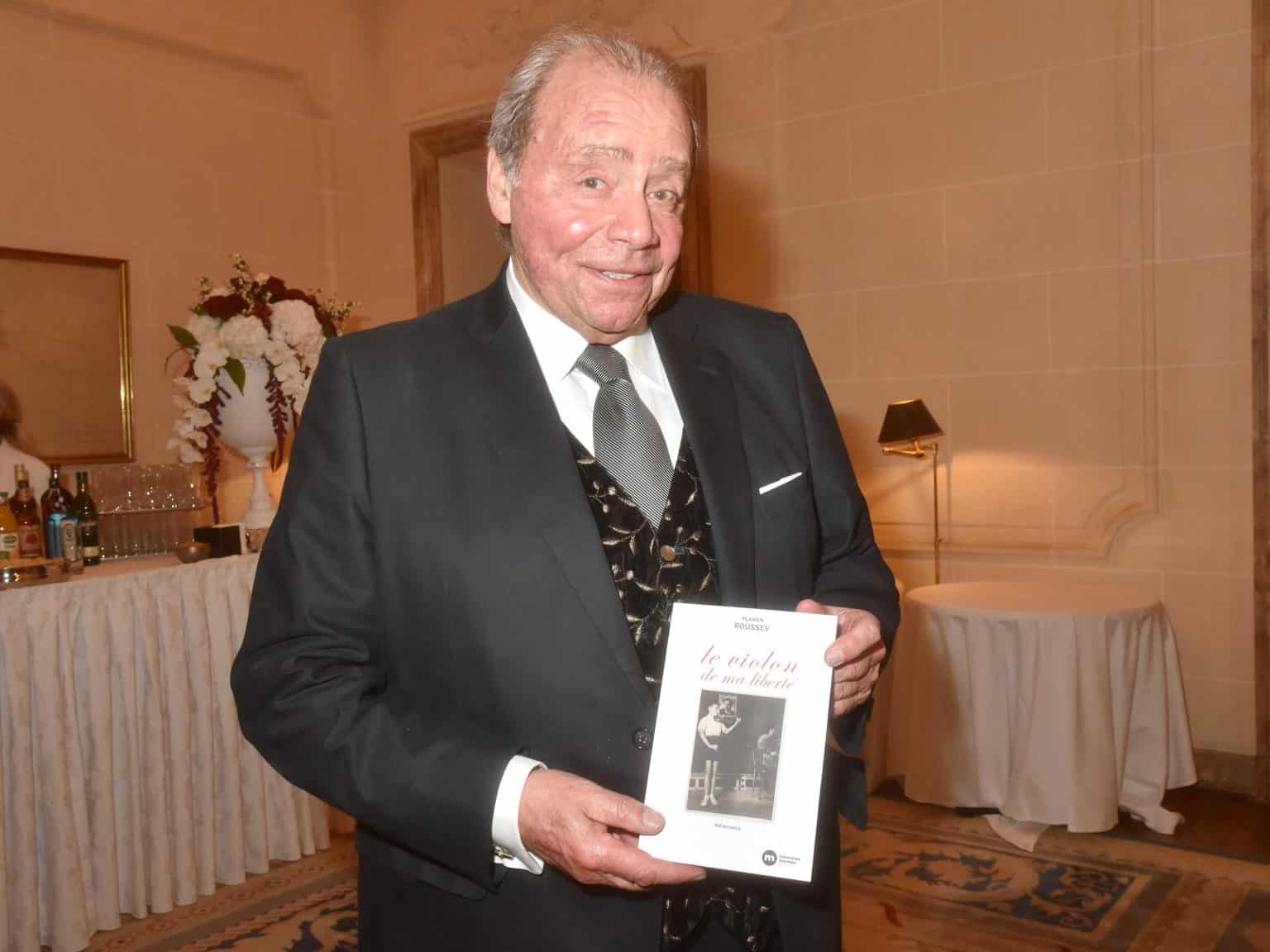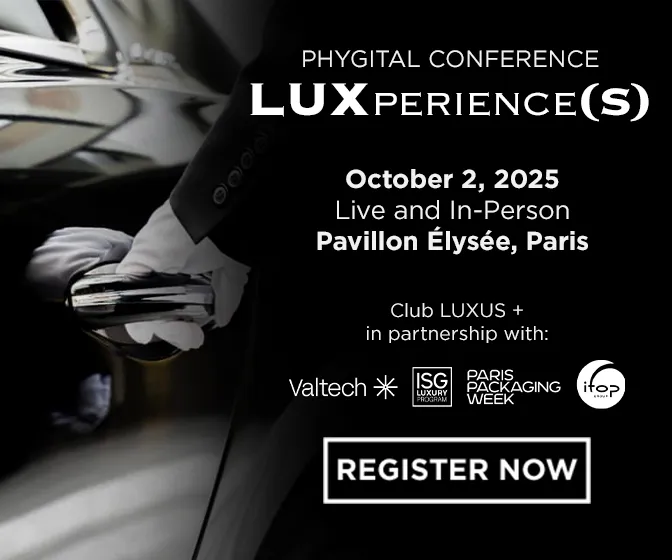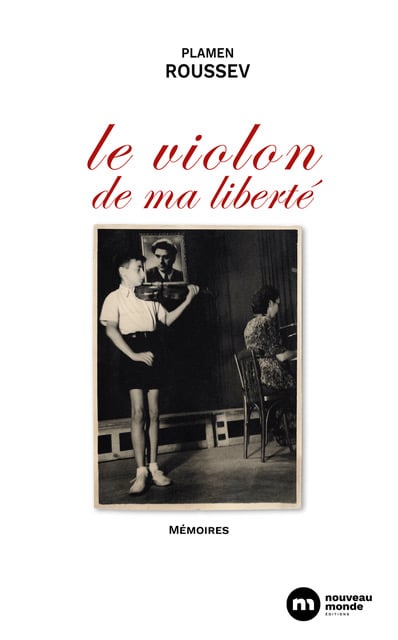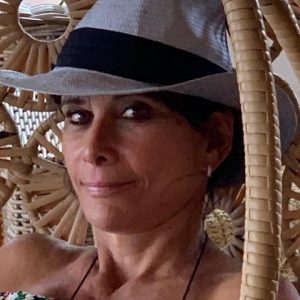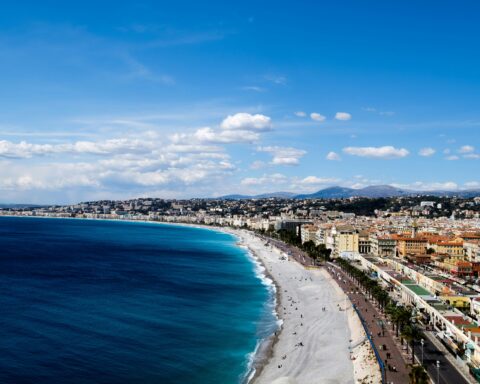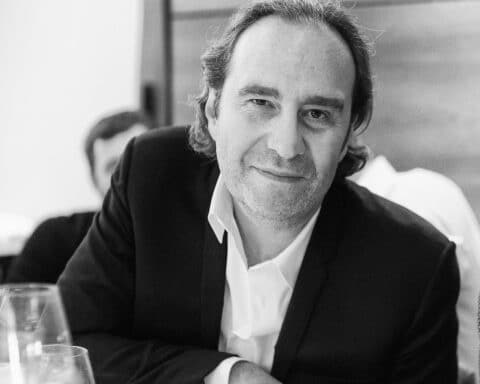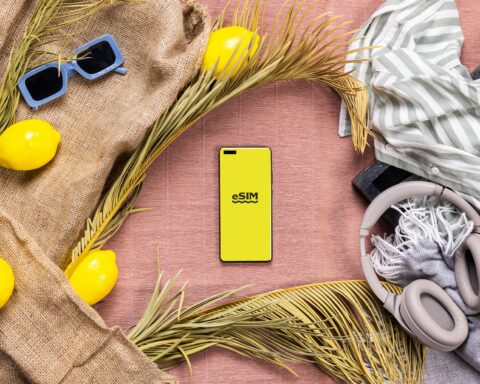Plamen Roussev, the young Bulgarian violinist who has moved to the West, has built up a “small personal monopoly” in France. He opened the first Alain Manoukian, Daniel Hechter, Lacoste franchises… He tells his story in “Le violon de ma liberté”. A sparkling and joyful meeting in his Parisian apartment.
The faithful housekeeper of Plamen Roussev announces to us that “Mister will be a little late”. The apartment is located on the 4th floor of a bourgeois building in the 8th district of Paris. We take the opportunity to admire the works of art in this nice apartment: paintings by Buffet, Delaunay, a sculpture by Modigliani… and a violin in love with a saxophone. Everything here breathes culture, gaiety, memories. It is the exact opposite of a “nouveau riche” residence whose decoration would have been entrusted to an interior designer. Plamen Roussev is a lover of the arts; he loves to hunt in antique shops and has a sure taste. He likes to acquire exceptional places, transform them by adding his personal touch. At the dawn of his 80 years, this is his favorite hobby.
Escape to the West
Smuggled into the West one evening in 1969, the young Bulgarian violinist had a fabulous destiny.
When he arrived in France, he was 27 years old – an already “advanced” age – and did not have a penny in his pocket. Ambitious and tenacious, he quickly rose from poverty and succeeded in business. The doors of Gold Gotha opened to him. He meets “the right people”, takes risks in sports and fashion.
A real novel character, Plamen tells his story in The Violin of My Freedom, published in November 2021 by Nouveau Monde. “I had to leave this testimony to my two daughters and my son; material goods are not the main heritage of a life !” he exclaims in perfect French with a slight singing accent.
But let’s go back to his youth in Bulgaria. It is the itinerary of a spoiled child. Death of King Boris III: his family is fined, considered as “enemies of the people”. His grandfather was executed in 1944. After several years in the symphony orchestra of the young Bulgarian communists, Plamen swaps the violin for the saxophone. To the great despair of his father who dreamed that he would become a concert violinist. Quickly, he plays in jazz clubs and gets contracts in Tito’s Yugoslavia. He discovers the dolce vita in the West. But Ilia, the bass player of his band, escapes to join Michelle, the French girl he is in love with. Plamen has no alternative but to flee before the KGB interrogates him and takes away his freedom. His very “dear” freedom.
Music, a universal language
Arrived illegally in France, the young exile barely speaks the language. His future could have been very dark. Michelle and her parents help him take his first steps. A new and providential family for him! Maurice, the father, was a photographer. “They were French people of modest origin, but very generous and kind. When I arrived, I first slept on a cot in the middle of the studio’s wedding decorations“.
At a kind of musicians’ “exchange”, Plamen met conductors who made him work. “I spoke the universal language of music. It was music that gave me freedom“. Isn’t music the best passport ? His fees fill him with pride, but they are not enough, far from it, to obtain his residence permit. Maurice found him a job as a worker in a BP warehouse in Gennevilliers. He lent him a shed in Herblay. One day his door was broken down and his saxophone and violin were stolen.
A World of Happy Few
The wheel turns. Plamen obtains his residence permit and rents a maid’s room, at 63 avenue Niel, in the Monceau plain. Already the taste of the beautiful districts! But he lives under the roof, without heating, without a tap on the landing. He turned his hovel into a little jewel. The walls are covered with fabrics bought at the Saint-Pierre market. It is the lyrical flight of materials and colors.
Plamen discovers the system of the “justified trade-in” thanks to his embellishment work. He gives up his room and, with the large sum paid by the new occupant, he immediately reinvests in a new home. A few months later, he did the same thing again. Then another and another… He is saved from poverty and settles pleasantly on rue de l’Assomption in the 16th district.
The acrobat lives of his music, makes meetings which propel him towards a world of Happy Few. He quickly learned the codes. From Saint-Tropez to Courchevel. His musical career evolves. He left the Théâtre des Champs-Elysées to play at Régine, the jet-set club of the time. There he made decisive contacts for the rest of his life.
But he continues to make imaginative efforts to compensate for his modest means. He loves flea markets. “I used to buy objects at Drouot auctions for almost nothing, furniture at the Saint-Ouen flea market. I must admit that I negotiated well with the sellers !”
An innate business sense
The musician seems to have more than one string… to his violin. He has an innate sense of business. A chance for an artist! The right brain and the left brain work together. Plamen is not disconnected from the material realities of life. On the contrary.
A poster, a telephone number. His intuition guides him: he aims at buying a 12 m² space in the future shopping mall of the Montparnasse Tower. It was the last available lot. No bank wants to lend him the 11,000 francs at the time. But a banker from BPCE is hypnotized by the character. She tells him : “You look like a wild horse“. Five minutes later, he is on the sidewalk, the signed loan in his pocket.
Initially a “Motorcycle Corner“, the store turns into a sporting goods store. All signals are green. Roussev Sport expands, acquires new premises and occupies up to 2,000 m². “I was the first to offer tennis rackets by mail order,” he says with amusement. He also imports skateboards that sell like hotcakes.
The French craze for sports has only just begun. Surfing on the new trends, he opened the biggest squash club in Paris, at the foot of the Montparnasse Tower, where the painter Zao Wou-Ki came to play as a neighbor. On the other hand, his success forced him to abandon his beloved music. Especially since he married Florence (whose mother he had met at Régine’s) and became the father of three children.
About sixty franchised stores
His “little personal Monopoly” is developing with the opening of franchises in the field of fashion and meals on the go. Alain Manoukian, Daniel Hechter, Lacoste, Pomme de Pain, Haagen Dazs… “I bought the walls of the Via Brasil company and set up a Lacoste boutique even though Bernard Lacoste thought that Montparnasse was not chic enough. In fact, it was a hit !” In total, the business virtuoso created, managed, closed, sold, bought and resold more than sixty boutiques.
Was the 1970s an easier time to succeed in business ? “No, every decade has its opportunities. Today, if I were starting from scratch, I would go into business on the Internet,” assures Plamen. But the virtual world has its limits. You can’t succeed without meeting people. I just signed my book to my banker. He is delighted“. His banker, we understood, he still needs him to undertake. Because this seducer in the soul has no intention to retire.
Plamen’s book is full of anecdotes, easy to read, full of optimistic lessons. “I wasn’t born with a silver spoon in my mouth. But my mother gave me her tenderness, her love. My father instilled in me stubbornness, hard work. He swallowed medical books at night in a cold basement to get out of misery. I didn’t see my family for 15 years before bringing them to France. It was a hard ordeal“.
The story of this homeless violinist who became an the accomplished businessman is worthy of the sagas of Claude Lelouch’s films. One cannot help but think of Itinéraire d’un enfant gâté played by our late Jean-Paul Belmondo. It’s not a coincidence that Plamen has a small role in the last movie of the director Love is better than life which will be released in January. But what role can he play? Surprise…
Read also > [LUXUS+ MAGAZINE] ”DIAMONDS” : A BRILLIANT BOOK ON AN EXCEPTIONAL STONE
Featured photo : © Getty Images

